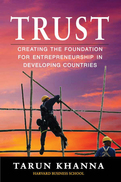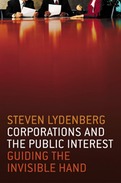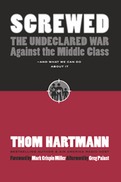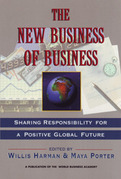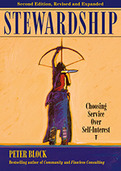2018
Creating the Foundation for Entrepreneurship in Developing Countries
Entrepreneurial ventures often fail in the developing world because of the lack of something taken for granted in the developed world: trust. Over centuries the developed world has built up customs and institutions like enforceable contracts, an impartial legal system, credible regulatory bodies, even unofficial but respected sources of information like Yelp or Consumer Reports that have created a high level of what scholar and entrepreneur Tarun Khanna calls “ambient trust.” If a product is FDA-approved we feel confident it's safe. If someone makes an untrue claim or breaks an agreement we can sue. Police don't demand bribes to do their jobs. Certainly there are exceptions, but when brought to light they provoke a scandal, not a shrug.
This is not the case in the developing world. But rather than become casualties of mistrust, Khanna shows that smart entrepreneurs adopt the mindset that, like it or not, it's up to them to weave their own independent web of trust—with their employees, their partners, their clients, their customers and with society as a whole. This can certainly be challenging, and requires innovative approaches in places where the level of societal mistrust is so high that, as in one example Khanna provides, an official certification of quality simply arouses suspicion—and lowers sales! Using vivid examples from Brazil, China, India, Mexico and elsewhere, Khanna shows how entrepreneurs can build on existing customs and practices instead of trying to push against them. He highlights the role new technologies can play (but cautions that these are not panaceas), and explains how entrepreneurs can find dependable partners in national and local governments to create impact at scale.
As far back as the 18th century Adam Smith recognized trust as what Khanna calls “the hidden engine of economic progress.” “Frankness and openness conciliate confidence,” Smith wrote. “We trust the man who seems willing to trust us.” That kind of confidence is critical to entrepreneurial success, but in the developing world entrepreneurs have to establish it through their own efforts. As Khanna puts it, “the entrepreneur must not just create, she must create the conditions to create.”
2008
Refutes myths about video game violence, antisocial content, and addiction
Video games have been a source of controversy in the media almost since their invention. At best, these digital diversions are thought of as trivial, childish obsessions. At worst, they are attacked as violent, antisocial, corrupting, and dangerous to our youth. But as Rusel DeMaria shows, video games may represent one of the most powerful learning technologies ever invented. He turns the controversy on its head and shows the positive potential of the much-maligned video game to inspire, motivate, and teach. DeMaria delves deeply into the realities of the gaming world, analyzing both the business forces driving game development and the unique qualities that distinguish video games from all other popular media. Drawing on the latest research on play and learning, he explains that it is precisely these qualities--a combination DeMaria calls the "magic edge"--that make video games such potentially powerful tools. He shows how games can be designed to integrate content that educates, inspires, motivates, and empowers players--even as they lure them in with their drama and thrill them with special effects--and offers numerous examples of popular games that do just that. He even offers a primer to help curious non-gamers begin to explore the gaming world and discover the positive potential of games for themselves. DeMaria presents video games in a new light and details many of the ways they can facilitate learning. Because millions of people are playing games all around the world, we owe it to ourselves to utilize their positive power to spark imaginations and make learning fun for our own kids and for gamers around the world.- Refutes myths about video game violence, antisocial content, and addiction
- Reveals how video games can become a force for positive personal and social change
- Written by a video game expert whose books have sold over two million copies
With so many recent examples of corporate greed and abuse of power, there is an obvious need for some kind of check on their behavior. But government has largely given up on regulating business, so what alternative is there?
In this important new book Steven Lydenberg outlines how the government can transform the marketplace so that market forces, rather than top-down regulations, move corporations away from such all too typical practices as plundering natural resources, dumping costs on society, and diverting assets to exorbitant executive payouts.
Lydenberg sees the proper role of corporations as creating long-term wealth--wealth which creates value in relationships with stakeholders, employees, customers and communities The heart of this book lies in a series of recommendations for creating practical tools that individuals and governments could use to encourage corporations to act in the public interest. The keys are information, analysis, and consequences.
Corporations and the Public Interest details how data on the social and environmental records of corporations could be made broadly available; how systems for analyzing, interpreting, and discussing that data can be developed and made accessible to the public; and how investors, consumers and others could use this information to reward those companies who are creating long-term wealth and punish those who are not.
These are not small tasks. Without them, however, society cannot reasonably expect that corporations will be directed to act in the public's long-term interests. Only a systematic approach like the one Lydenberg advocates can move corporations to see beyond this quarter's profits.
- Addresses corporate misdeeds and provides antidotes to scandalous corporate behavior
- Details how government can use the marketplace, rather than regulations, to make corporations act more responsibly
- As a pioneer in the field of socially responsible investing, Steven Lydenberg is uniquely qualified to write on this topic
2007
- By the bestselling author and XM and Sirius Satellite radio host heard on more than eighty radio stations coast to coast seven days a week
- Reveals how the middle class, nurtured as the backbone of democracy by our Founding Fathers, is being undermined by so-called conservatives
- Shows how we can reverse the erosion of the middle class and restore the egalitarian vision of the Founders
- Expanded edition with a new chapter on immigration and a new afterword by Greg Palast
- Brings together a stellar group of today's most creative thinkers in the area of business and global change, including Harlan Cleveland, Joel Kurtzman, Riane Eisler, Patricia McLagan, David Korten, Peter Russell, Hazel Henderson, and many more
- Encourages broad dialogue on the important socio-economic, ecological, and moral questions facing business today
- Examines the responsibility and opportunities of businesses and business people to make significant contributions to the future of humanity
"The business of business is business!"
For many years, this credo, articulated by General Motors President Alfred T. Sloan, Jr., in 1923, has justified virtually every decision made in the business world. Especially in the United States, there was little doubt that the function of the private sector was to provide for the needs of society and to generate wealth. Other matters would be dealt with by public-sector bodies and agencies. To be sure, corporations were called upon to assume a reasonable degree of social responsibility, and the work environment was to be less regimented than in the past, and more encouraging of self-actualization. But both of these were subject to, and to an extent justified by, improvement in the financial bottom line.
But as the world rushes toward the end of the millennium, many people see increasing signs that some sort of fundamental change is taking place. Some trends are clearly with us and generally assumed to be positive-globalization of the economy, continued economic growth, spreading democratization, accelerating technological advance, burgeoning global communication. Other trends are less positive and are, so far, unyielding to remedial efforts-increasing inequality, progressive destruction of the natural environment, increasing concentration of power and wealth, rising unemployment and underemployment together with "jobless growth." Meanwhile, there is spreading talk of a "new paradigm" in the business world, and behind that of emergence of a new worldview. This new world view mandates that we transcend the traditional view of the role of business.
Since 1992, the World Business Academy has published an impressive number of articles aimed at exploring aspects of this emerging "new paradigm" in its quarterly journal Perspectives on Business and Global Change. This edited volume collects twenty-one of these essays from some of today's finest thinkers in the area of business and global change, and stimulates dialogue and debate on the future of business. Their contributions address a broad range of difficult issues-from corporate accountability and money's demise to the spiritual poverty of business-and pose such challenging questions as: What is sustainable change? Is progress possible? What is wise leadership?
Business people in decision-making positions who can influence the way their companies affect the world-executives, managers, financial officers, investors, consultants, business professors, and government policy makers-will want to reflect on these cutting edge essays. Far-reaching in scope, these insightful contributions from important thinkers will appeal to all those who seek a broader understanding of current global socio-economic trends.
- Brings together a stellar group of today's most creative thinkers in the area of business and global change, including Harlan Cleveland, Joel Kurtzman, Riane Eisler, Patricia McLagan, David Korten, Peter Russell, Hazel Henderson, and many more
- Encourages broad dialogue on the important socio-economic, ecological, and moral questions facing business today
- Examines the responsibility and opportunities of businesses and business people to make significant contributions to the future of humanity
2013
We still face the challenge of fostering ownership and accountability throughout our organizations. Despite all the evidence calling for profound change, most organizations still rely on patriarchy and control as their core form of governance. The result is that they stifle initiative and spirit and alienate people from the work they do. This in the face of an increasing need to find ways to be responsive to customers and the wider community.
Peter Block insists that what is required is a dramatic shift in how we distribute power, privilege, and the control of money. “Stewardship,” he writes, “means giving people at the bottom and the boundaries of the organization choice over how to serve a customer, a citizen, a community. It is the willingness to be accountable for the well-being of the larger organization by operating in service, rather than in control, of those around us.”
Block has revised and updated the book throughout, including a new introduction addressing what has changed—and what hasn't—in the twenty years since the book was published and a new chapter on applying stewardship to the common good of the wider community. He covers both the theory of stewardship (in particular how it ameliorates the shortcomings of traditional leadership) and the practice (how it transforms every function and department for the better). And he offers tactical advice as well on gearing up to implement these reforms.


